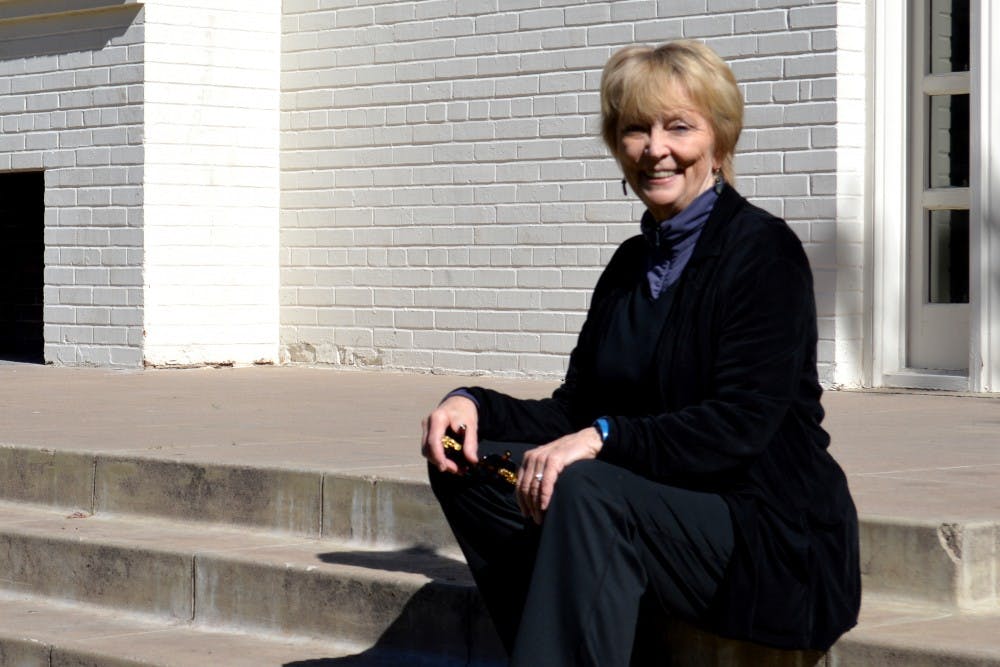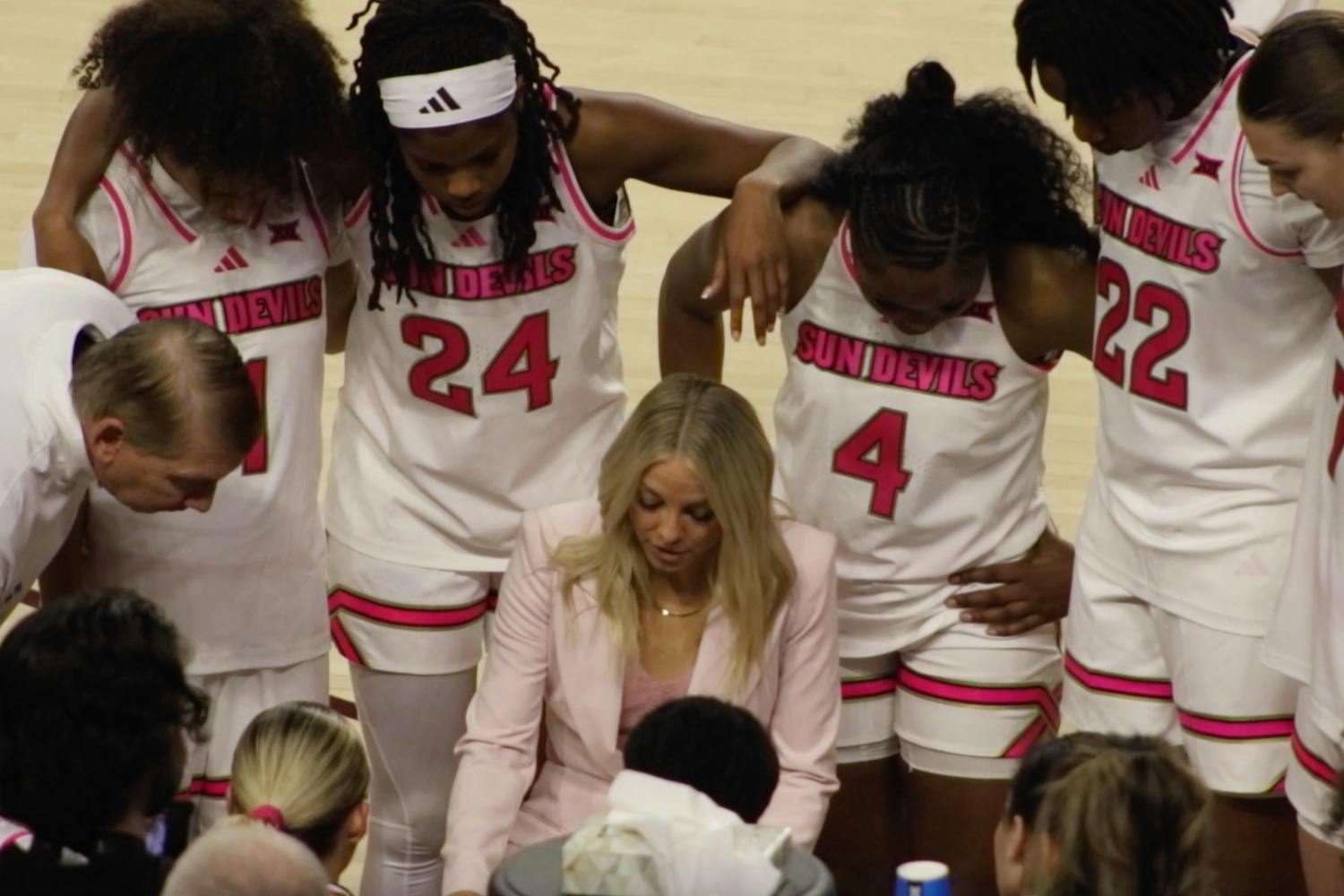Like many thespians, Bonnie Eckard once lived the life of a performance artist in
Eckard's love of drama started at a young age. She grew up in a family that moved around frequently and found that theater was the one constant in her life where she could feel like she belonged. She knew early on that she wanted to pursue a career in the performing arts.
Being a theater professor wasn't her initial goal, but she quickly recognized that it was a job that would support her passion for the arts and allow her to work on- and off-stage doing what she loved.
Eckard came to ASU in 1996 after working at academic institutions in
"Even back in 1996, ASU was progressive and vibrant, with a broad range of intellectual ideas," Eckard said.
In her time at the University she's been able to explore those ideas not only as a professor but as a director of numerous productions.
From a directing perspective, she said she finds herself drawn to mythology combined with movement, music and voice. Two of her favorite performances she has directed have been the Sanskrit narrative "Shakuntala" in 1989 with
She said the impact of theater is important because it goes beyond the stage to impact our perception of the rest of the world.
"We all (utilize) our senses and imaginations,” she said. "We create narratives that help us make our world make sense. For me, (theater) is how I live my life and make sense of the world. I bring together my sensory experience with my imagination, then communicate that with someone else."
One of Eckard's biggest passions is promoting diversity and individuality in the theater.
"The positions of power in
Her call to diversity spoke to several of her past students — now ASU alumni — on a very personal level.
"I know it was a fundamental shift for me in terms of my aesthetic," Bree Valle, ASU alumna, said.
Valle graduated with a master's degree in performance with a specialization in acting in 2000, and she credits Eckard's teaching as opening her eyes to the socio-political importance of performance art.
"The type of work I wanted to do was changed by Bonnie's influence," Valle said. "I was much more interested and focused on creating theater that had a strong social and political justification. I'm not interested in doing '
Tyler Burke graduated with his degree in theater with an acting concentration in 2015. He took classes with Eckard almost every year and she supported him throughout his senior capstone thesis.
Burke said that studying under Eckard changed his perspective on acting and empowered him to look at the profession as human-focused.
"As an actor it's about replicating emotions and being a person," he said. "She really showed me that a lot of acting is just learning about people, caring about people and looking at what's going on around you."
Fellow ASU theater professor William Partlan said he appreciates how Eckard understands the value of diversity as not only important but essential to show business.
"As theater artists, our job is to observe what life is, how people act and why they do what they do," Partlan said. "Part of that is understanding that from many different perspectives. Diversity isn't just nice — It's very important to the art to understand how others think, believe and deal with the world, and how the world deals with them."
Eckard said she hopes that her class is an environment where students can find inspiration to expand their own ideas and talent.
"We're all creative beings, but sometimes our creativity gets clouded and abstracted," she said. "I create an environment where (students) experience what it's like to be creative. Once they experience what it feels like, then they can repeat that and practice exercising it. Little by little, it becomes easier."
Related Links:
Why the lack of diversity in the Oscars is a disservice to films
Latinx representation making small, slow steps forward on the silver screen
Reach the reporter at skylar.mason@asu.edu or follow @skylarmason42 on Twitter.
Like The State Press on Facebook and follow @statepress on Twitter.




